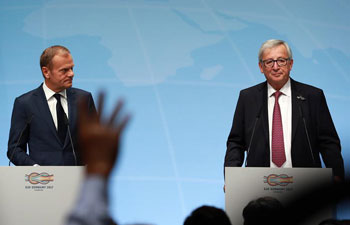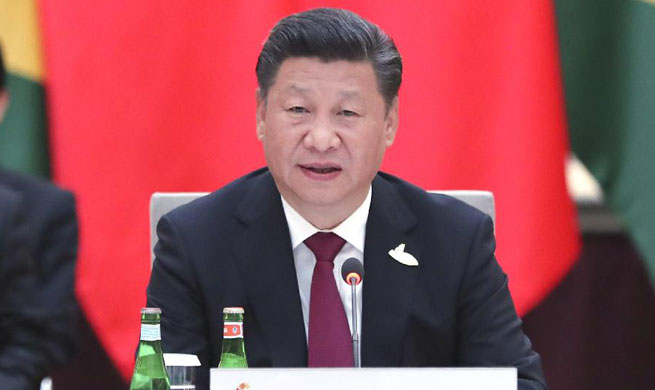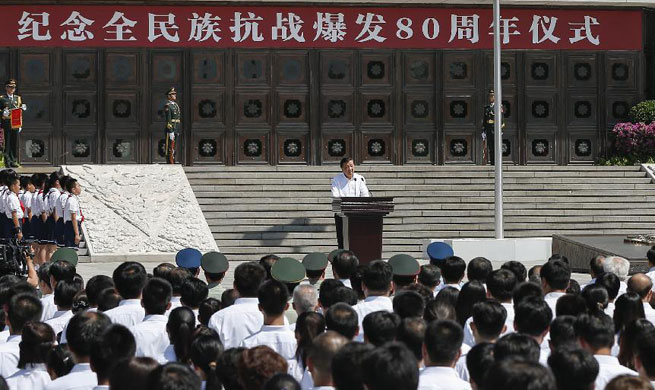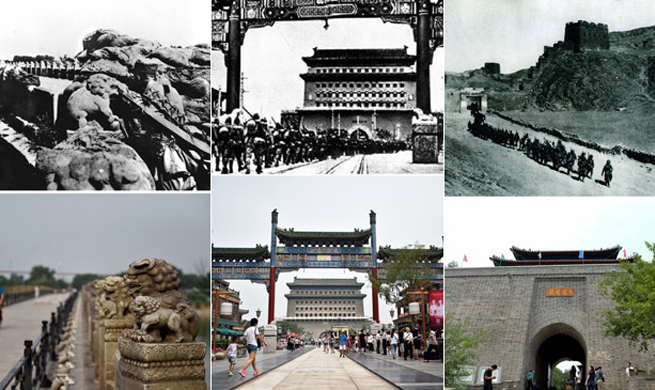by Alessandra Cardone
ROME, July 7 (Xinhua) -- China's support for the South-South Cooperation (SSC) Program has been highlighted during a meeting at a side event at the recently concluded 40th session of the UN's Food and Agriculture Organization (FAO) Conference here.
As one of the earliest participants in the program -- and as one of its largest contributors -- China played a vital role in allowing the achievements the SSC has reached so far, according to officials.
"The government of China has largely contributed to the SSC Program and to the Triangular Cooperation," FAO Director-General Jose Graziano da Silva said in his speech.
He stressed China was one of the first countries to establish "a strategic alliance with FAO," providing a total 80 million U.S. dollars financial grant to the SSC Cooperation Fund since 2006.
Launched in 1996, FAO's SSC Program aims at boosting sustainable agricultural and rural development, tackling food insecurity and poverty, and improving resilience of agriculture to natural disaster in countries around the so-called Global South.
Besides providing a framework for financial support to developing projects, it promotes exchanges of knowledge, experts, and technologies to encourage an independent growth of countries in the south.
According to the FAO chief, the SSC would provide an innovative model in terms of international cooperation as well, for its being based on a "horizontal approach, and on the concept of solidarity."
As for the specific FAO-China SSC Program, by the end of 2016 it supported developing projects in 28 countries in Africa, Asia, South Pacific, Latin America and the Caribbean, according to FAO officials.
"Over 1,000 long-term Chinese experts and technicians were deployed in 28 countries, accounting for over 50 percent of the total South-South cooperation," Dongxin Feng, deputy director of FAO Office for Partnerships, Advocacy and Capacity Development Division, said.
Projects concerned several areas of production, such as livestock, horticulture, irrigation, aquaculture, agricultural mechanization and food processing.
The China-FAO SSC Program so far allowed the training of 100,000 local farmers and agricultural technicians, as well as the testing of more than 300 varieties of crop, according to Feng.
Some 450 agricultural technologies, and 200 sets of agricultural machineries were also transferred from China to the supported countries, and over 1,500 training activities were organized in the field.
Ambassador and Permanent Representative of China to FAO Niu Dun told the audience that "one million farmers and smallholders have overall benefitted from the program."
Testimonies of the FAO-China SSC Program's achievements were provided by governmental representatives from developing countries.
"Namibia, China, and FAO signed a Triangular Agreement within the SSC Program in June 2014," said Sophia Kasheeta, Deputy Permanent Secretary at Namibia's Ministry of Agriculture, Water and Forestry.
The first phase of the Namibian project concerned developing rice production, increasing horticulture crop yields, and improving technical capacity in both residual and virology analyses.
"Fifteen Chinese rise varieties were tested, of which three were found suitable for Namibia's climate conditions," Kasheeta said, "Cultivation techniques and technologies were also successfully transferred and adapted in the country, and training in rice production was provided to local farmers and technicians."
Another SSC project was launched between Uganda and China in 2012. Since then, FAO said 31 Chinese experts and technicians were deployed in the eastern African country to assist farmers in several agriculture, livestock, and agribusiness activities.
Some 25 new technologies were transferred to Uganda, and 17 new varieties of crops introduced. According to Ethel Kamba, Uganda's Under Secretary of Agriculture, Animal Industry, and Fisheries, the government of Uganda believed the SSC project with China "contributed to increase our agriculture production and productivity."
"The success of this initiative in Uganda is attributed to the fact that, right from the beginning, the project was an interactive one," Kamba explained.
"It involved all of the interested stakeholders, from the ministry in charge of agriculture to local governments and local farmers, and the Chinese experts."
















